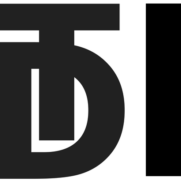Developing Critical Thinking Skills
This is not something our educational system or cuture seems to value. However nowadays we have access to more information than ever before, but at the same time we are more confused. This make developing critical thinking skills a higher priority for everyone. I covered problems and the causes of this problem in a previous blog post called “Education or Instruction?”. Poor critical thinking skills are so endemic that many people have lost confidence in their own ability to make decisions. Most people outsource the majority of their most important thinking to other people believing themselves incapable. I believe there’s huge room for improvement in most people , including myself and for this reason I was very excited when I came accross the Trivium and the Peace Revolution Podcast. Lacking in the ability and confidence to scrutinize information makes a person an easy target for scoundrels. The Peace Revolution Podcast aims to provide information and tools to develop skills needed for “intellectual self defence” by developing critical thinking skills.
The Trivium is one of those tools . Today the trivium is taught only in a small group of elite educational establishments. The fundamentals of the trivium are ancient, they were developed by Aristotle. The Latin word “Trivium” means “from the three ways”
1. General Grammar (Answers the question of the Who, What, Where, and the When of a subject.) Discovering and ordering facts of reality comprises basic, systematic Knowledge
2. Formal Logic (Answers the Why of a subject.) Developing the faculty of reason in establishing valid [i.e., non-contradictory] relationships among facts, systematic Understanding
3. Classical Rhetoric (Provides the How of a subject.) Applying knowledge and understanding expressively comprises Wisdom or, in other words, it is systematically useable knowledge and understanding
Reference http://www.triviumeducation.com/
The mastery of the Trivium allows for an individual to quickly assimilate information, judge its quality and turn this information into wisdom. Wisdom being knowledge that has useful application. In studying the trivium Formal Logic is a good place to start as it deals with the identification of lies, which is something we are bombarded daily. Using Formal Logic to Identify fallacies The study of Formal Logic helps understanding by rooting out contradictions and fallacies. Fallacies are not the same as lies they are information that is either deliberately or unknowingly misleading. With the trivium you can you identify fallacies and also name the type of fallacy that is being perpetrated. For a list common fallacies that you could pop in your wallet see this Mental Antivirus checklist. To see some fallacies in action see below
I currently have the Mental Antivirus checklist in my wallet and have already brought some logical rigour to some pub conversations. I provided some friends a copy of the Mental Antivirus Checklist and found that using the common approach meant we had much more meaningful dialogue than normal.
Final thought
The word trivia is derived from singular for the Trivium. It is interesting how something so important has come stand for something so…………….trivial. I’d love know how you get on with the Trivium – Drop me line in the comments! Paul

